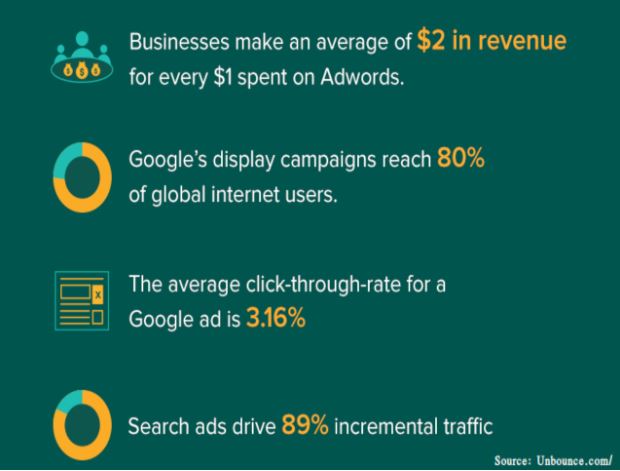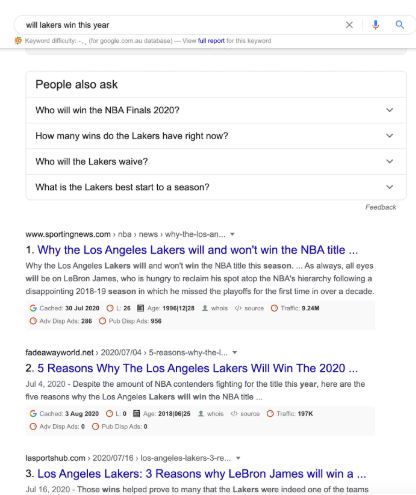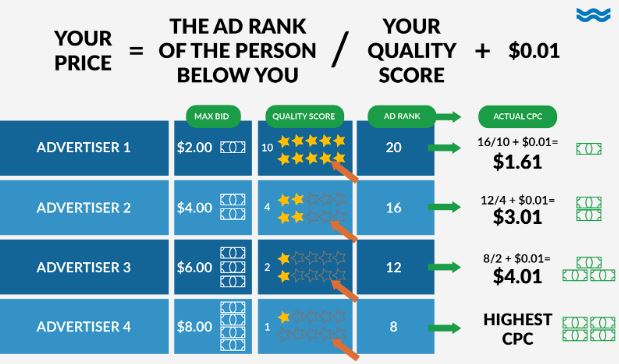




PPC or SEO – Which is better?

 05 Aug 2020
05 Aug 2020
Most often than not, our Bangkok SEO clients often ask the question, “Which is better, PPC or SEO?”. The answer to that is PPC for the immediate short and long term, SEO is for the long term.
That is, PPC results are almost instantaneous (with a lot of planning of course, for target keywords and creating relevant landing pages) whilst SEO does take quite a bit of time (and investment) to achieve results which are self sustainable on the organic searches. It’s often seen as a very simple question but the answer to that is very complex as it depends on a number of elements, such as;
 Typically the Google organic search results page will have 10 listings only. It is therefore vital (if you are in a competitive market) to have your website in the top 10 positions of Google for maximum exposure and to generate more enquiries. Failing that, your website may just be another statistic of a website out there generating very little visits.
To increase visibility from doing SEO, it is important to realise that it takes time and you need to persuade Google’s algorithm to trust your website. The essence of making your website crawlable with spicy juicy content will allow the crawlers to understand your website, your web page’s intent to then further index your webpage for relevant search keywords.
With probably over 200 ranking factors being utilised by Google’s algorithm, one would probably start to imagine how much work needs to be invested into getting a website to rank. Well it’s the same as building a car, you start with the base of the vehicle and work your way up is the same approach you would take with your own website. You would always be constantly making adjustments to your onsite structure and content. That is a fact, and to be honest, one of our main headaches here at Digital Muscle. In addition to that, you need to be clued up on:
Typically the Google organic search results page will have 10 listings only. It is therefore vital (if you are in a competitive market) to have your website in the top 10 positions of Google for maximum exposure and to generate more enquiries. Failing that, your website may just be another statistic of a website out there generating very little visits.
To increase visibility from doing SEO, it is important to realise that it takes time and you need to persuade Google’s algorithm to trust your website. The essence of making your website crawlable with spicy juicy content will allow the crawlers to understand your website, your web page’s intent to then further index your webpage for relevant search keywords.
With probably over 200 ranking factors being utilised by Google’s algorithm, one would probably start to imagine how much work needs to be invested into getting a website to rank. Well it’s the same as building a car, you start with the base of the vehicle and work your way up is the same approach you would take with your own website. You would always be constantly making adjustments to your onsite structure and content. That is a fact, and to be honest, one of our main headaches here at Digital Muscle. In addition to that, you need to be clued up on:

- Your objectives.
- How much time can you afford?
- Budget and capacity to carry out the work.
- Competition in your sector.
- What else are you doing to generate enquiries to keep your business running?
 Typically the Google organic search results page will have 10 listings only. It is therefore vital (if you are in a competitive market) to have your website in the top 10 positions of Google for maximum exposure and to generate more enquiries. Failing that, your website may just be another statistic of a website out there generating very little visits.
To increase visibility from doing SEO, it is important to realise that it takes time and you need to persuade Google’s algorithm to trust your website. The essence of making your website crawlable with spicy juicy content will allow the crawlers to understand your website, your web page’s intent to then further index your webpage for relevant search keywords.
With probably over 200 ranking factors being utilised by Google’s algorithm, one would probably start to imagine how much work needs to be invested into getting a website to rank. Well it’s the same as building a car, you start with the base of the vehicle and work your way up is the same approach you would take with your own website. You would always be constantly making adjustments to your onsite structure and content. That is a fact, and to be honest, one of our main headaches here at Digital Muscle. In addition to that, you need to be clued up on:
Typically the Google organic search results page will have 10 listings only. It is therefore vital (if you are in a competitive market) to have your website in the top 10 positions of Google for maximum exposure and to generate more enquiries. Failing that, your website may just be another statistic of a website out there generating very little visits.
To increase visibility from doing SEO, it is important to realise that it takes time and you need to persuade Google’s algorithm to trust your website. The essence of making your website crawlable with spicy juicy content will allow the crawlers to understand your website, your web page’s intent to then further index your webpage for relevant search keywords.
With probably over 200 ranking factors being utilised by Google’s algorithm, one would probably start to imagine how much work needs to be invested into getting a website to rank. Well it’s the same as building a car, you start with the base of the vehicle and work your way up is the same approach you would take with your own website. You would always be constantly making adjustments to your onsite structure and content. That is a fact, and to be honest, one of our main headaches here at Digital Muscle. In addition to that, you need to be clued up on:
- Technical SEO
- Link building
- Viral content generation and marketing
- User experience (UX) and user interface (UI) and be able to adjust on the fly with the current trends in your industry. The expertise of a web designer will be required.
- Again, on-page SEO, as this commands a lot of effort from your developer.
The advantages of SEO
- At least you're not paying for advertisement! As soon as you stop PPC/Adwords, your ads will disappear. Your traffic and enquiries, gone, with a click of a button. The organic clicks on the search results are for free, but that doesn’t mean SEO is for free. A proper SEO campaign requires a moderate amount of investment which later, can be fine-tuned so you can make your ROI back.
- SEO is a way to improve your site’s visibility. Just imagine your website ranking on top of your competitors for that particular keyword. Also, your shoppers and clickers will feel more compelled at clicking your listing if it was all the way up the top of the page.
- Once your SEO game is strong, and your rankings are excellent, you can self-sustain your business online without having to pay extra for PPC.
- Organic SEO allows for your website to be featured constantly on the first page of Google constantly, whereas with PPC, depending on your competitor’s bidding strategy, you will find that your advertisements fluctuate in positions.
- SEO is proven to be more cost-effective in the long term. With PPC you have to come up with a strategy to outbid your competitors and what happens if you run out of budget? Yup! You guessed it.
- Even though Google Ads take up almost the top half of the search result page, the organic results is what a searcher would most likely click on, based on the fact that it is not a paid ad. Take a read of this, and you will get to eventually understand why most business owners prefer SEO over PPC in the long run.
The disadvantages of SEO
- Our number one biggest complaint from our clients. Time. “How much time do you think it would take for us to rank on the first page of Google?”, “We need to be on the first page of Google within 3 months from now”.. And the list goes on forever. There is no secret formula to getting your website on the first page immediately and if there was, I wouldn’t be here writing this blog for you to read. I’ll be on a yacht somewhere enjoying my quiet life, why spill the secrets? SEO always takes time, especially if you have just started a new business or domain. It may take up to 6 months to rank in some extreme cases and this is probably why PPC is recommended in the initial stages, so you can still be busy receiving phone calls than to wait for the SEO to kick in.
- SEO can initially be expensive. Expensive why? Because that money is going to go towards resources to help establish you better and greater backlinks. Also it won’t just be one person working on your campaign. It’ll be a collective team, working on your website often. The more competitive the market is, the greater the demand in budget and that’s fair. When you work with an agency, you can expect that each team member will be experienced in technical SEO, link building, content creation and curation, competitor analysis and when to make certain moves. The advantage of hiring an agency is that you get to work on the business and not in the business itself.
- SEO is an ongoing process which really only benefits yourself in the end. Understand that your website will go through evolution, so constant tweaks will need to be done in order to benefit greater on the organic search results. In an active SEO campaign there is always work to be done as your competitors have never stopped working.
- SEO can be daunting especially when Google updates their algorithm. This is entirely out of our control as you are at the peril of Google. The only thing stays constant - always offer compelling content on your web pages and to make constant refinements on your UX/UI so that your customer base always stays with you, even during a massive core update.
The advantages of PPC
- Instant results. That’s right! You set it up, allocate budget to your PPC campaign, hook it up with a valid credit card and off you go to the races! Almost immediately, you will see your ad being featured on the first page of Google. Ain’t that a good feeling?
- The top half of the search result page belongs to Google Ads. And that is where your ad will be featured. For the searcher, this means that they no longer have to scroll all the way down to the organic section. If you have the right copyright text in your PPC ads, and there are plenty of reasons on why they should click your ads over your competitors, then you're about to generate a legitimate enquiry.
- Greater reach out to your audience and more exposure to your brand. When you’re running ads you’ve got more options to target your customers whether that be, shopping ads, Youtube ads, Gmail ads and more. An ecommerce website or setup will benefit greatly from Google Merchants and ads.
- You're in better control of your ads. You can adjust your ad on the fly if anything changes within the business or your prices have changed. With SEO, you can’t as your search result is at the hands of Google and what content they have chosen to index. The ability to be in 100% control allows for you to always remain competitive.
- The ability to be able to do A/B testing. Much like with the Facebook Ad Manager, A/B testing allows for you to work out which ad variety or combination works best, so you can adjust for bigger returns on your spend.
- No need to worry about Google constant algorithmic updates. As long as your ads are running, you don’t need to worry about your backlinks or content. Just make sure you have the right landing pages for your ads, otherwise it could very well backfire too.
The disadvantages of PPC
- PPC can get rather expensive. That’s often dependent on the keyword volume and how much other bidders are paying for that keyword. It’s quite normal to bid over $20.00 per keyword per click. Now multiply that out by 100 keywords, and you will realise how light your wallet can quickly become. The Keyword planner allows you to do some research into finding out how expensive a keyword is.
- For PPC unfortunately, the more you spend, the greater the return. Your conversion and bounce rates will dictate if you have an effective Adwords campaign. If you don’t have the right setup initially, you will find that you have wasted money and clicks. Best to always plan the keyword choices, design the right landing pages, and to carefully think about the text which goes with each of the ads.
- Other bidders may influence the price of a keyword. The more they bid will often drive the price of the keyword straight through the roof. And you have no control over this.
- If you have hired an agency to look after your PPC campaigns, you will also have to pay them management fees. That’s on top of your PPC spend. For some, this may be an extravagant figure.
- Had enough and decided to turn off your PPC? There goes your traffic and enquiries. A well balanced approach is to have a mixture of both PPC and SEO however, that depends on your dealings with the agency you are talking to.

Can PPC and SEO work together?
The short answer is yes. And the key here is never to favour any strategy and always remain in the present, especially when planning and executing for what will become, your future business leads and enquiries. The key is to strike a perfect balance for your website, a mixture of PPC can bring quick results and enquiries, to keep the phones and emails busy, whilst the SEO is being worked on in the background, which will eventually kick in later on to further sustain the business. Over the last decade of working with our Thai based SEO clients, we found that 90% of businesses require both strategies to bring in constant enquiries. Out of most of these strategies, we found that our Thai SEO clients prefer remarketing/retargeting as it was effective.How does ad retargeting work?
Retargeting/remarketing works extremely well if you have cookies enabled throughout your website. From here, it’s just a matter of running Ads through your Adwords account to retarget users who have previously been on your website. It may not just be the website itself, they could have also clicked on your Youtube videos.. Your cookies will store that information allowing for other users to retarget you in their ads. One of the best examples is, if a user visited a certain page or added a product to their shopping cart and then left the website, you are able to serve ads specifically to these users so that they can return back to your website through ads on the search results or banner ads on the Google Display Network. One of our Thai clients would often increase their bid for the users who abandoned their basket, so that later when they do revisit and click on your remarketing ad, your product ads will be more prominent, calling for attention. Use the information from Adwords to guide your SEO strategy Yes, your own Google Adwords account has a plethora of valid up-to-date data, such as conversions, ad headlines, call to action, messaging - all these data which can inform you which keywords to target and how to revamp landing pages for better conversions and lower bounce rates. These days the Google search algorithm is looking specifically at click through rates, the higher the better, the more meaningful and impactful it will have on your own search rankings. And your PPC campaign is enough for you to work through with your agency to explore ways at maximising the customer’s experience and journey throughout your website. Look you're probably reading through all this thinking still, which strategy is better for me? The truth of the matter is you should be working on both strategies to further increase your website’s presence on Google and to get that phone ringing. Brainstorming and executing the strategy at hand takes a lot of planning in advance and unfortunately, if you don’t have the time or the resources to build all these custom landing pages to serve the ads, then you may consider registering for Google My Business, update it with all your business details and photos and run a Adwords smart campaign based off your Google My Business listing. An example over here of what information you should put in your own listing to generate more business enquiries and phone calls. The advantages of running a Adwords smart campaign is that it is almost effortless and requires little thinking to get it off the ground running. Although it does have it’s own disadvantages, it generally serves well for business owners who do not have the right resources or budget to hire a proper agency or simply just don’t have the time to plan properly. In summary and from a professional opinion, we would consider SEO if we are already driving sales from other sources of revenue and would like to self sustain ourselves for the long run. Use PPC only if we are looking to get the ground running with enquiries or even just by conducting a test run on a new product, to see how the market place responds. But both strategies should work hand in hand with each other to maximise on missed opportunities as if you will sacrifice on one strategy, your competitor will certainly reap the benefits of your search result not being there.
Related Topic
The Honest, Shocking Truth Behind Our $1500+ – Month SEO Package AUDIO version
 20 Aug 2020
20 Aug 2020
Your browser does not support the audio element.
The Honest, Shocking Truth Behind Our $1500+ / Month SEO Package

 20 Aug 2020
20 Aug 2020
From time to time we’ve all come across prospects who literally think and make a marketing decision based on what’s available in their wallet. Some prospects are unable...
Best SEO Company in Bangkok | Affordable SEO Company in Bangkok
© 2019-, Digital Muscle Limited
 Arthur C
Arthur C 



